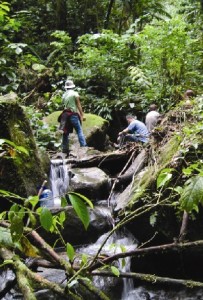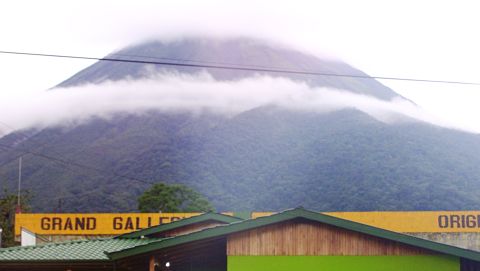Costa Rica News – Landowners thinking about starting an agritourism business or are growing one, may join a group of industry experts in February on a nine-day trip to Costa Rica – a world leader in ecotourism and agritourism.
 Hosted by the Texas A&M AgriLife Extension Service, the trip will focus on best practices in ecotourism and agritourism and will cover topics such as marketing, wildlife conservation, customer service and the tour guide profession.
Hosted by the Texas A&M AgriLife Extension Service, the trip will focus on best practices in ecotourism and agritourism and will cover topics such as marketing, wildlife conservation, customer service and the tour guide profession.
Participants will have the chance to talk with a number of ecotourism and agritourism professionals as well as experience a variety of tourism operations, including Finca Luna Nueva, a sustainable rainforest ecolodge and certified organic biodynamic farm.
The farm was established in 1994 with planting and harvesting of organic ginger and turmeric. Almost a decade later, the owners of the farm built several ecolodges using fallen timber. Since then, they have added a 50-foot-tall observation tower, a solar-heated Jacuzzi, an ozonated swimming pool and a handicapped accessible rainforest trail.
Guests from across the globe come to Finca Luna Nueva to learn about the farm’s sustainable practices and relax at the lodge’s rustic yet luxurious accommodations. The establishment and its growing operations has become one of Costa Rica’s top agritourism sites.
Participants also will visit the Texas A&M Soltis Center, National Museum, Proyecto Asis Wildlife Preserve and Carara National Park. A chocolate farm/forest tour and a crocodile viewing boat tour also are on the agenda. Participants will stay at various lodges, including the Punta Leona Hotel & Resort, which has its own wildlife preserve along the beach.
“A major goal of this field course program is to provide participants with additional insights on how they may enhance their own operations and communities by introducing higher-value experiences to attract regional and international visitors,” said Miles Phillips, AgriLife Extension nature tourism specialist in the Recreation, Park and Tourism Sciences department at Texas A&M University.
Phillips, who serves as the program’s instructor, said Costa Rica is one of the world’s most successful sustainable tourism destinations and that the Latin American country and its people provide a wealth of information on what does and doesn’t work when it comes to boosting travel and tourism while conserving wildlife and natural resources.
Costa Rica is about the size of West Virginia and was the first among its peers to recognize the importance of protecting natural resources, with nearly 25 percent of its territory, and part of its maritime zone, declared national parks and protected areas. In addition, there are several private initiatives dedicated to protecting the environment.
Such enterprises are growing in the United States, including Texas. In 2011, 90.1 million Americans, 38 percent of the U.S. population 16 years old and older, enjoyed some form of fishing, hunting or wildlife-associated recreation. This type of recreation is a huge contributor to our nation’s economy. Expenditures by hunters, anglers and wildlife-recreationists totaled $145.0 billion in 2011, which equates to 1 percent of the gross domestic product. More simply, one out of every 100 dollars of all goods and services produced in the United States is due to wildlife-related recreation.
Another 37.4 million Americans participated in fishing, hunting or both sports in 2011. These sportsmen and women spent $43.2 billion on equipment, $32.2 billion on trips, and $14.6 billion on licenses and fees, membership dues and contributions, land leasing and ownership, and plantings for hunting. On average, each sportsperson spent $2,407.
Attending the Best Practices in Ecotourism and Agritourism Field Training trip to Costa Rica Feb. 18-26 can help landowners bring back plenty of ideas and best practices to apply to existing or future operations. More importantly, it will show what is possible.
The cost of the trip is $1,699 per person and includes lodging, land travel, meals and tour experiences. This price does not include airfare, and a few miscellaneous expenses, as some attendees might wish to extend their trip or use frequent flier miles.
For more information and to sign up for the trip, go to http://naturetourism.tamu.edu/
From southwestfarmpress.com

